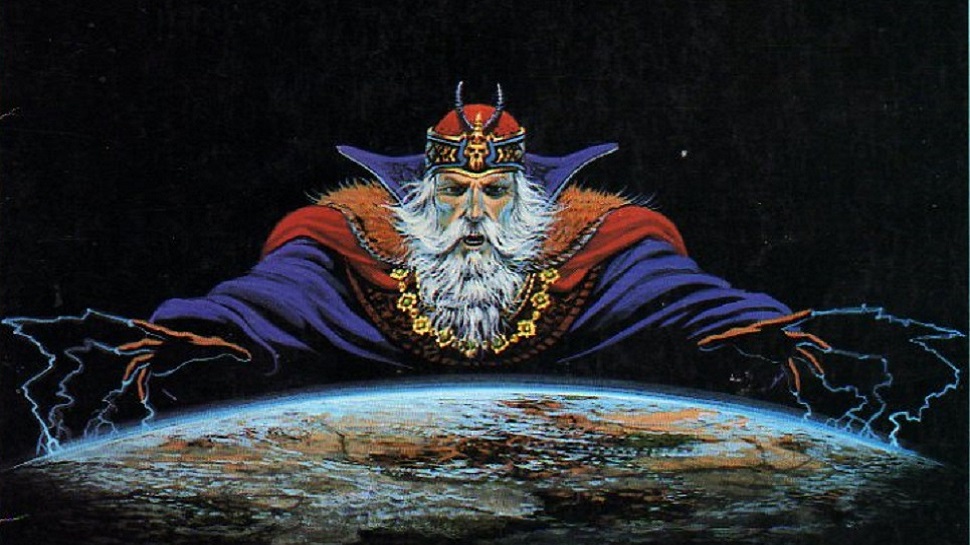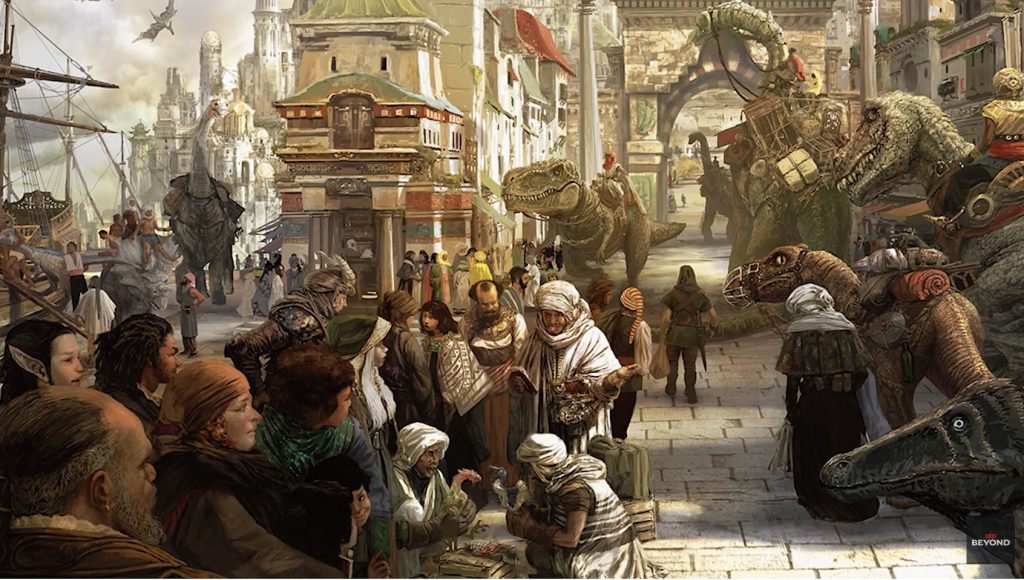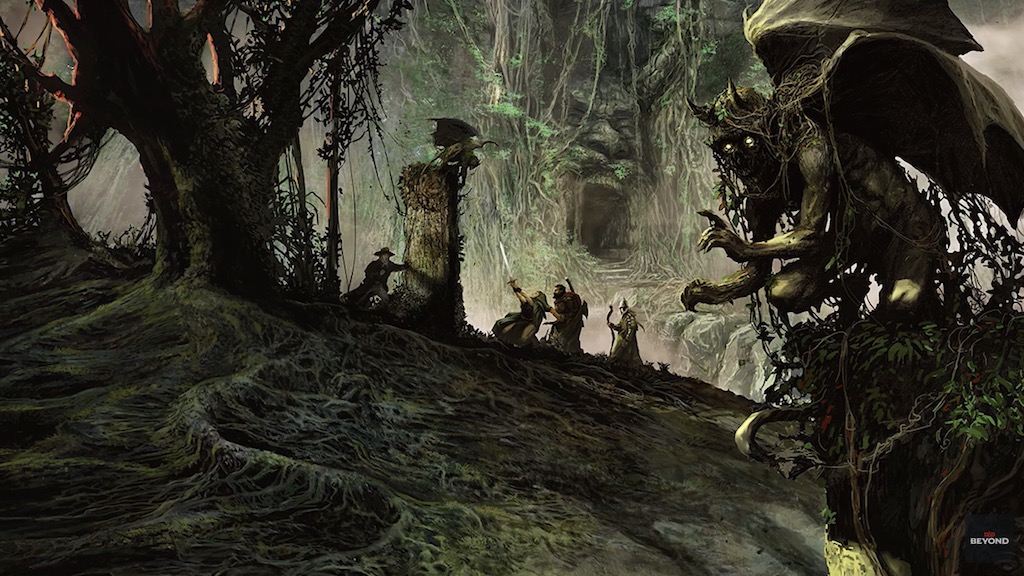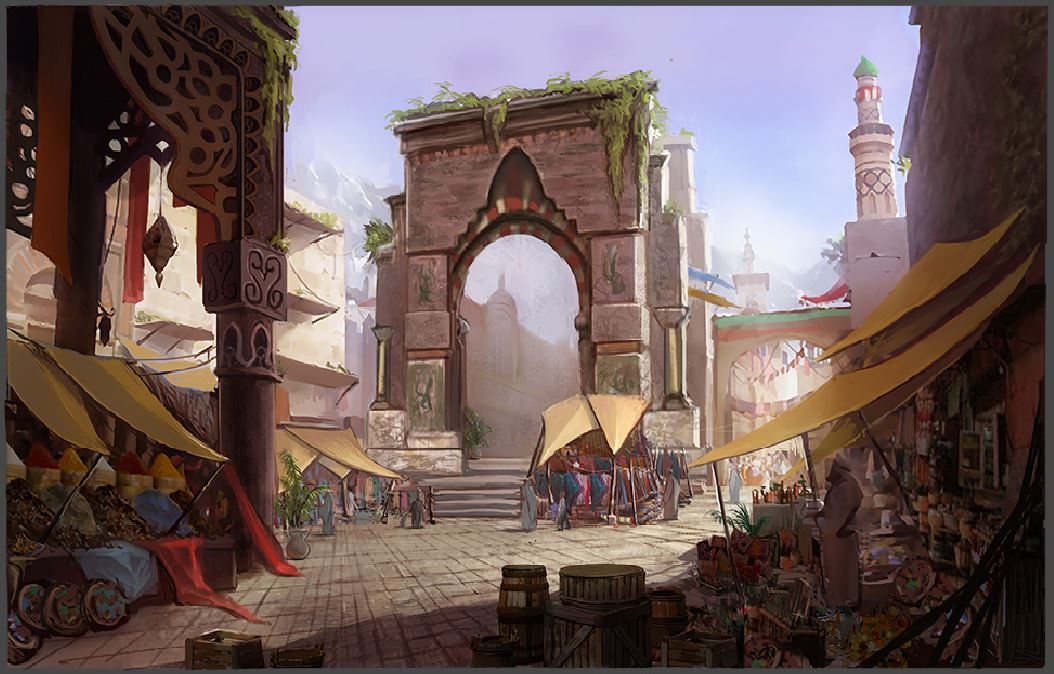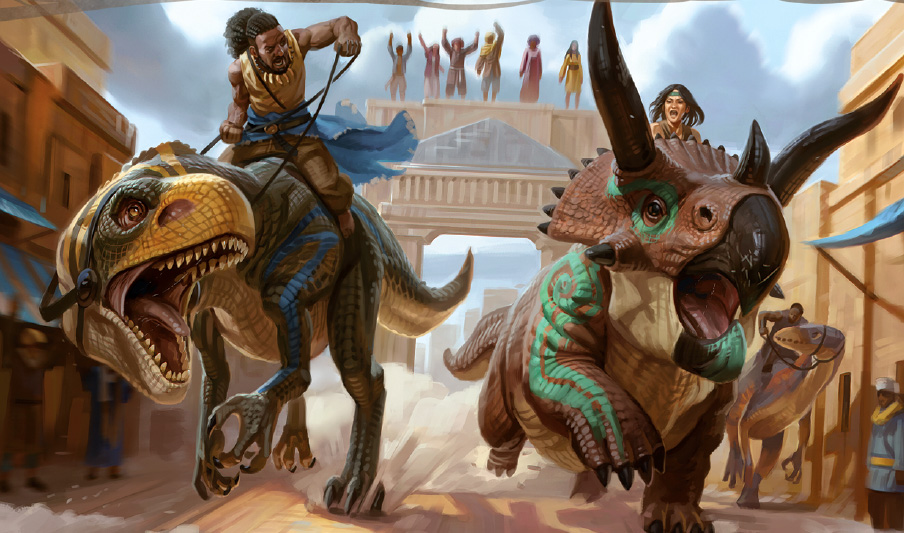D&D: What the Tomb of Annihilation Teaches About City Design
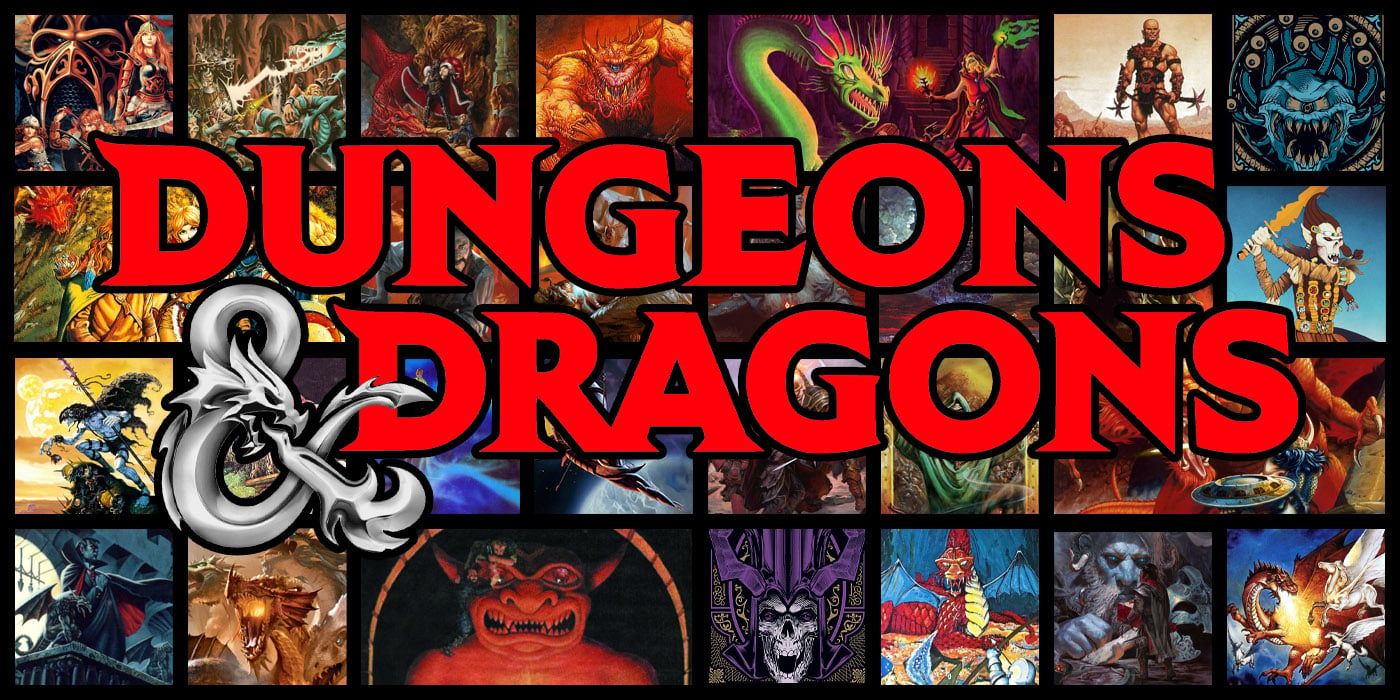

The Tomb of Annihilation gets many things right–here’s how it does cities.
Open up the Tomb of Annihilation and you’ll find the bustling city of Port Nyanzaru. A veritable hub of adventure and trade, this city feels alive and vibrant. It has a character all its own, and it stands out among its peers because of this. It’s easy to picture it–a city of bustling conversations, merchants shouting, and dinosaurs wandering the streets, laboring all amid a background of adventure.
But what makes this city feel so uniquely alive? It’s not just dinosaurs, or a wealth of activities. It dies stand out though. It’s got more character than a place like Neverwinter or Waterdeep, and it really lends itself to exploration. Let’s look at how it’s put together and see what lessons can be gleaned for use in your own design.
Theme and Purpose
I’d say one of the biggest things about Port Nyanzaru is that it has a distinct theme. It exists to serve a specific purpose in the world, and much of its design is built around that. It’s a launching point, the first introduction that characters have to the peninsula of Chult, and their first brush with the adventure surrounding the Tomb of Annihilation. As such, it has a few very specific goals in mind:
Set up the tools of the adventure. The Tomb of Annihilation is equal parts race to the center of the adventure, exploration at the edges of civilization, and discovery of new things. Port Nyanzaru helps to highlight the things the characters will be doing later on by offering them a chance to do the very same thing in the city. It’s like a tutorial level, almost, in that it provides adventurers with some of the tools they’ll need to succeed in the Tomb of Annihilation. When characters arrive, they can explore the city–indeed, they have to if they want to have a hope of finding their way to the next segment of the adventure.
But it’s not hard for characters to do. The adventure has multiple paths that characters can take to get to meet with a guide (which is the ultimate goal of Nyanzaru). Nearly every turn they take is set up to help them get to the point where they meet with a guide. Whether it’s one of the ten random side quests that characters can stumble upon, meeting with people in a Tavern, or even being accosted in the streets, there are multiple avenues that all direct the characters where they need to go. And as a result, it encourages the PCs to follow what strikes their interest and followup leads they get. If every step here leads to “success” it reinforces this idea for later on when the players are exploring in a less safe environment.
But what I really like is that because it is set up so that there’s such variety in how the players get there, the city of Nyanzaru is really able to get out more of its character and by extension, more of the character of the adventure.
Set the tone of the adventure. The Tomb of Annihilation feels much different than previous published campaigns. It’s got a mixture of bleak situations, high adventure, and humor that comes about as a result of the characters which is what really sells me on this book–I don’t think I’ve ever seen an adventure that allows its characters to be the butt of a joke, or to really nail down a cohesive feel, despite how varied the different segments of the adventure are.
A big reason for this is that the designers clearly know what the city is intended for. Since they have so many routes that exist to serve the purpose of “get the characters to the point where they can explore Chult” they’re free to experiment with that variety. The more opportunities they have to show the character of the adventure.
Let’s take a look at one location in Nyanzaru, the Executioner’s Run. This is a long pit that once was used in an old Amnian ball game, but now is used to entertain crowds and execute criminals. The pit is filled with hungry beasts like Panthers or Velociraptors, convicted criminals are dropped in one end, and if they make it to the other end alive, they win their freedom and the crowd’s favor. This has the side effect of some locals being considered celebrities due to their ability to survive the ordeal multiple times.
Fun stuff. And look at the opportunities the characters have to interact with the pit. They can be approached by a man who pleads with then to save his husband, who has been wrongfully convicted of a crime, and can try and help him on the sly or risk angering the crowd and the lords of the city. Alternatively, they might themselves be sentenced to the run for committing crimes, or they might bet on the outcome of such a gauntlet running. Either way, the characters are led there and given something fun to do while having an active role in the adventure.
I especially like that characters can get sent there for committing crimes–it’s a “reward” even though, from the point of view of the characters, it might seem like a punishment, it gives players something active to do instead of narrating out them sitting in jail or paying a fine. The “penalty” is more game play. Again, rewarding exploration and interaction.
And that’s just one location. The city is chock full of places that have fun things for the characters to do–they can buy special equipment, go dinosaur racing, meet with merchant princes and beggars–but all this variety is meant to establish the character of the crowded city. It feels alive because the things in it are meant to serve that purpose.
So when you sit down to design your own cities, think about how they fit in, not just to your game world, but to your adventure. How can they reinforce the tone you’re going for? How can they exemplify the things the characters should do? Or, how can they give characters a break from the established tone? That too is an invaluable tool at your disposal.
If you’re just getting started, I’d recommend taking a couple of places in either a city/location you’re designing from scratch, or something from one of the preexisting bonds and really think about how it can be used. Try and come up with three wildly different encounters that characters might have with it. Once you have that figured out, it’s easier to figure out how this place fits in with the rest of your world.
What’s a favorite locale you’ve designed? How did you use it? Let us know in the comments!

